Team by team: The best and worst NL free-agent signings since 2012
Anyone who's followed baseball over the years knows how risky the free-agency game can be. All 30 teams have, at one point or another, found diamonds in the rough while also giving out onerous deals that have come back to haunt them.
Yesterday, we looked at the best and worst free-agent signings by every American League team since 2012. Now, it's the Senior Circuit's turn. Here are the best and worst National League signings from the past five years.
Arizona Diamondbacks
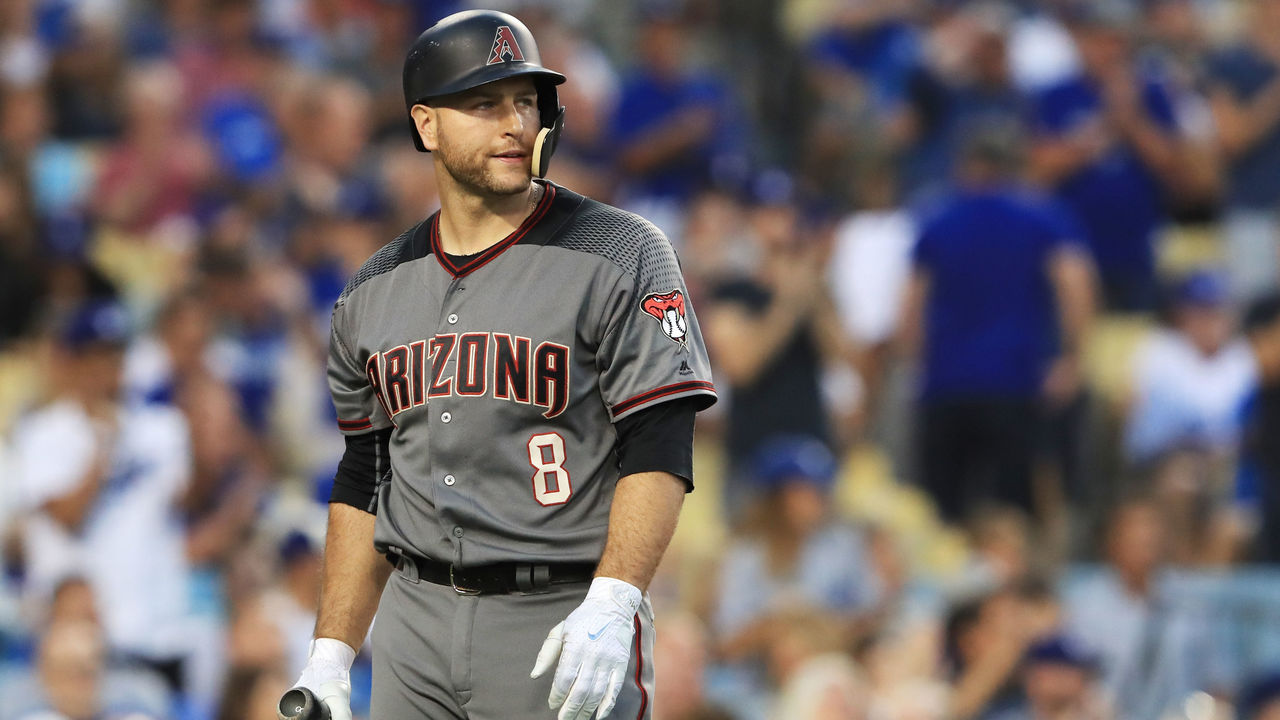
Best: Chris Iannetta (1-year, $1.5M)
Arizona scooped up Iannetta last January, and he rewarded the team's faith by producing an excellent age-34 season. Though a fastball to the face did shorten his year to 89 games, he still produced a .254/.354/.511 slash line with 17 home runs, while his 2.2 fWAR matched that of J.D. Martinez in the latter's post-deadline stint with the D-Backs. Iannetta brought stability to a weak Arizona catching corps when he wasn't hurt, and the team may not have reached the playoffs without him.
Worst: Bronson Arroyo (2-year, $23.5M)
Arroyo had no injury history before signing this deal - he'd averaged 207 innings and 33 starts from 2004-13 - but instead of a reliable innings-eater, the Diamondbacks got just 86 frames of near-replacement-level production before Tommy John surgery not only ended Arroyo's 2014 season, but also cost him the next two. And if that wasn't bad enough, Arizona only convinced the Braves to take on the rest of Arroyo's contract by packaging him with top pitching prospect Touki Toussaint.
Atlanta Braves
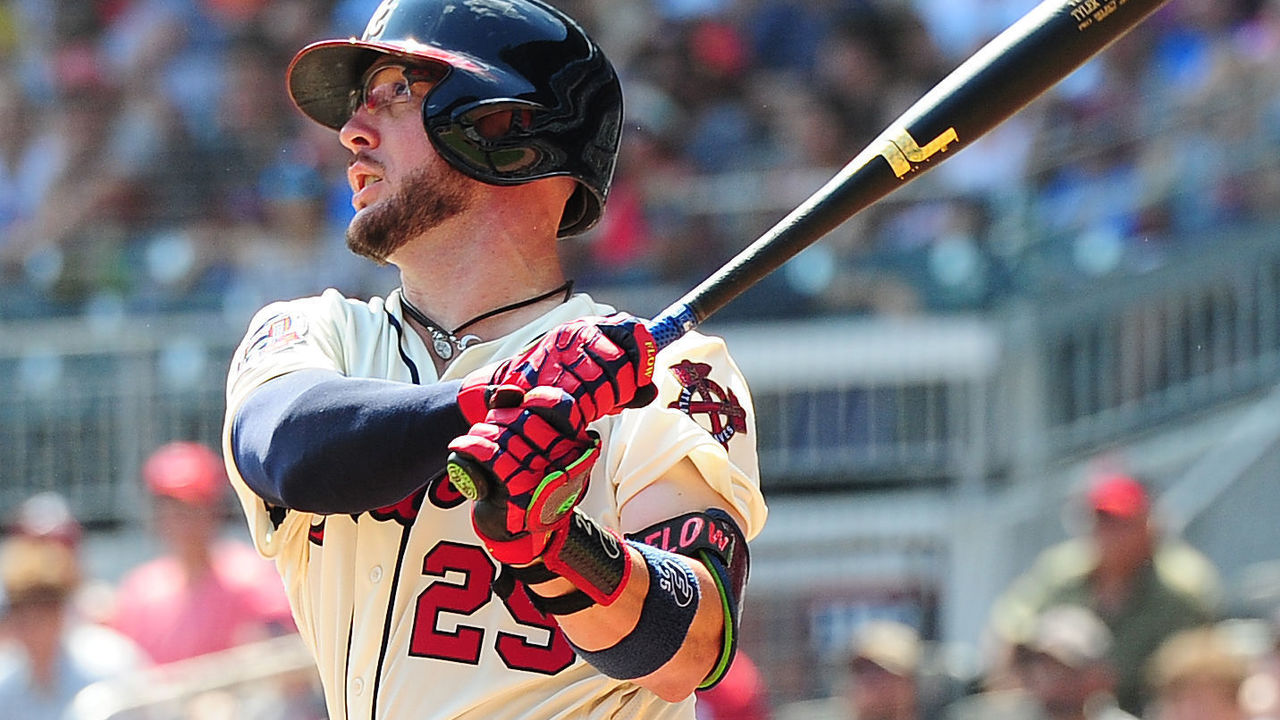
Best: Tyler Flowers (2-year, $5.3M)
A former top prospect who was non-tendered by the White Sox after years of failing to live up to the hype, Flowers was scooped up by Atlanta and has blossomed into a reliable everyday catcher. Since joining the Braves on this bargain contract he's put up an .801 OPS, and just completed a career-best season on both sides of the ball while splitting time with Kurt Suzuki. The contract keeps paying off for the Braves, as they brought Flowers back for 2018 by exercising his $4-million option this winter.
Worst: Melvin Upton Jr. (5-year, $75.25M)
This remains among the more inexplicable and disastrous free-agent contracts in recent memory. Upton Jr. - then still going by the moniker B.J. - lasted just two seasons in Atlanta. In that time he hit just .198/.279/.314 (66 OPS+) with 21 homers, 32 stolen bases, and 324 strikeouts, while producing minus-2.1 WAR. Atlanta did manage to foist the last three years of this contract onto the Padres, but only because Craig Kimbrel was included in the package.
Chicago Cubs
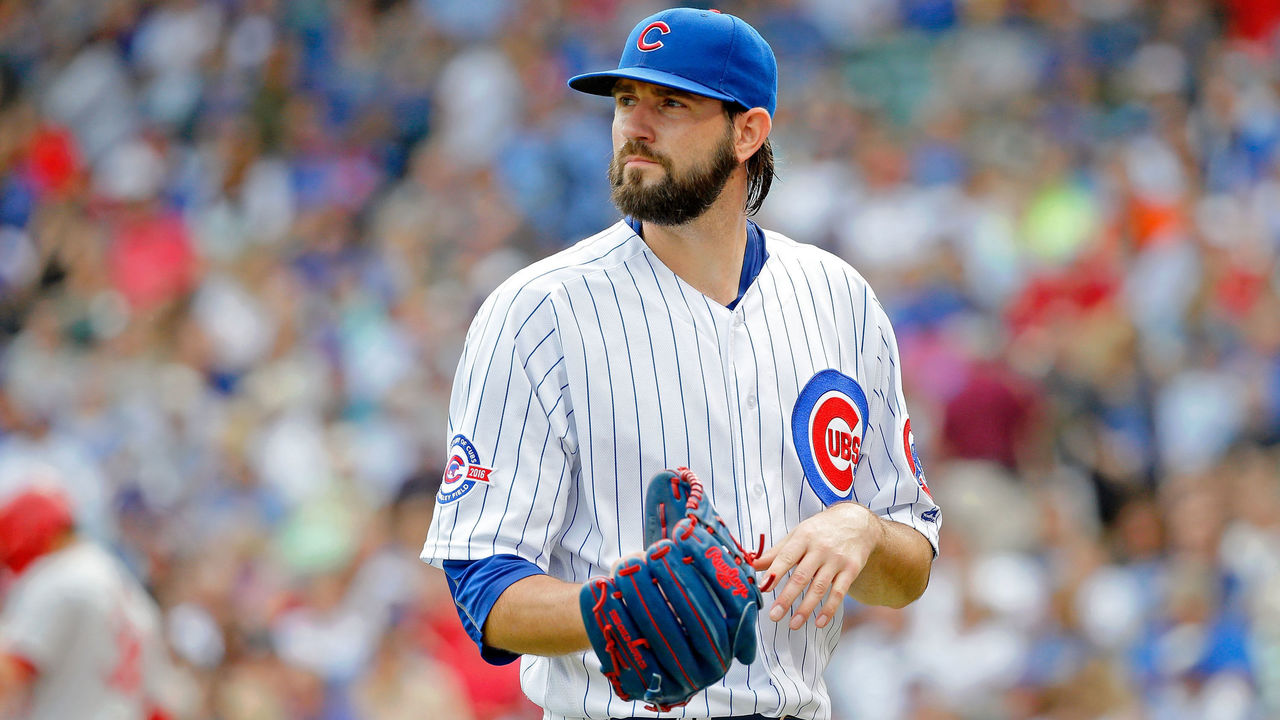
Best: Jason Hammel (2-year, $20M)
The Cubs actually signed Hammel twice in the last five years, and the first deal - one year, $6-million in 2014 - also worked out nicely when they turned him into Addison Russell at the deadline. But it's his 2015-16 return that gets the nod on this list. Hammel was a critical piece of the Cubs' return to relevance across those two seasons, producing a 3.79 ERA and averaging 8.4 strikeouts per nine innings on a pair of playoff teams. He didn't pitch in the 2016 postseason, but the Cubs wouldn't have been in position to end their curse without his regular-season work.
Worst: Jason Heyward (8-year, $184M)
Yup, even Theo Epstein screws up sometimes. Though Heyward won Gold Gloves in his first two seasons with the Cubs and made a certain speech during a certain Game 7 rain delay, this contract is slated to be Chicago's albatross for years to come. Heyward's bat has been non-existent since signing this deal; in fact, his 78 wRC+ since 2016 is the sixth-lowest among all qualified hitters over that span. Motivational speeches aside, he's also been a virtual ghost in the playoffs. Even last season's bounce back to a .715 OPS and 11 homers didn't provide much hope going forward.
Cincinnati Reds
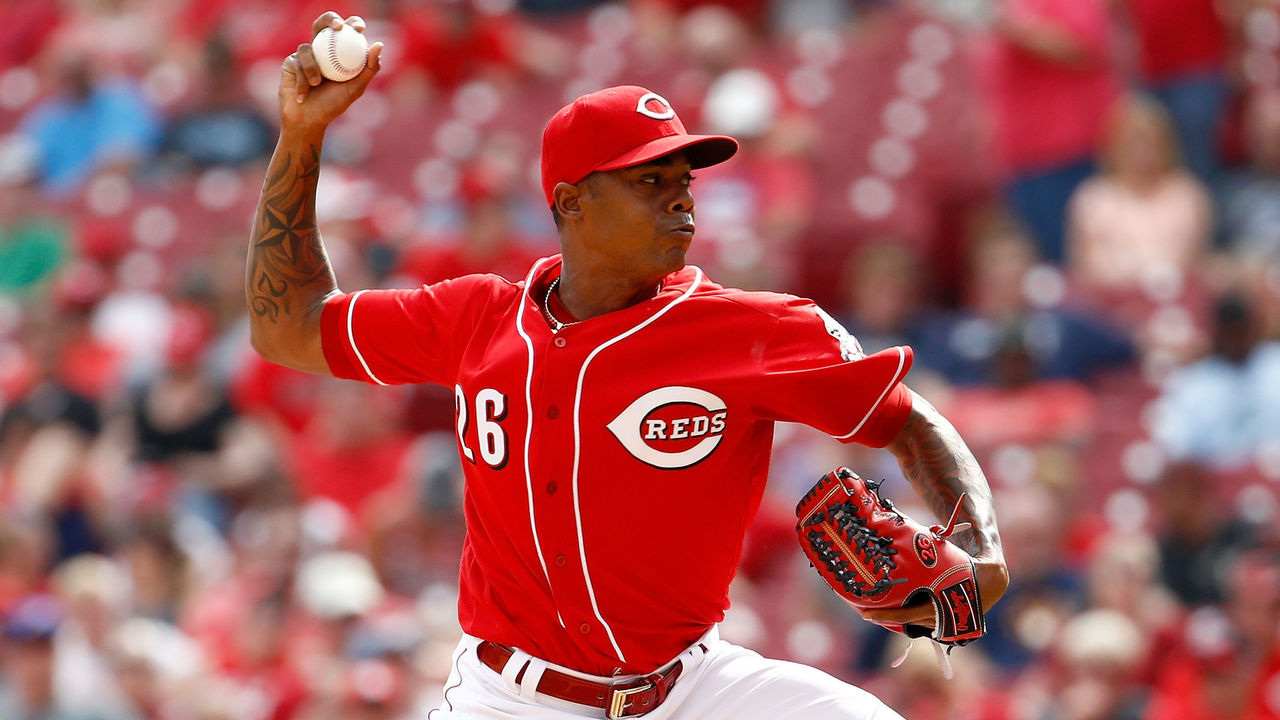
Best: Raisel Iglesias (7-year, $27M)
Closers on last-place teams don't get a ton of attention, so you may have missed Iglesias breaking out as a dominant ninth-inning option in 2017. The Reds scooped him up after he defected from Cuba in 2014 and he's making teams that passed on him look foolish. Last year, his first as a full-time closer, Iglesias saved 28 games while striking out nearly 11 batters per nine innings. He's now set to anchor the Reds' bullpen for years to come, and because of this excellent contract, he should still be in place once they're ready to contend in a few years' time.
Worst: Ryan Ludwick (2-year, $15M)
Ludwick first joined the Reds before the 2012 season on a $2.5-million deal that proved to be a bargain when he slashed .275/.346/.531 with 26 homers and a 130 OPS+. After he declined his option to explore free agency, he returned on this contract, which was almost instantly regretted by the team. A shoulder injury suffered on Opening Day in 2013 limited Ludwick to just 38 games and a 71 OPS+ (though he did go 2-for-4 in the Reds' wild-card game loss). His performance dipped even further in Year 2 of the deal, slashing .244/.308/.375 in 400 plate appearances as the Reds fell out of contention. Unable to rid itself of the contract, Cincinnati was forced to eat the deal and decline Ludwick's 2015 option, a move that ended his big-league career.
Colorado Rockies
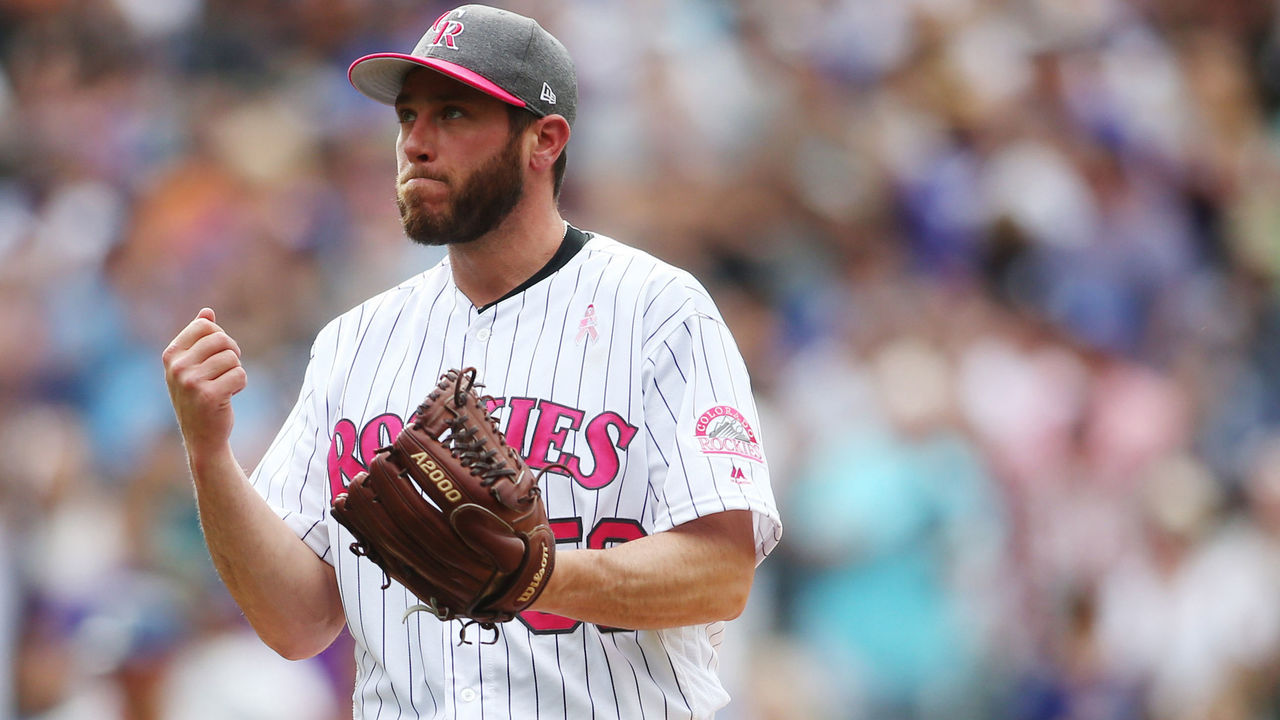
Best: Greg Holland (1-year, $6M)
The Rockies took a chance on Holland after he missed all of 2016 due to Tommy John surgery, and he rewarded them with a return to All-Star form. While he did slow down a bit in the second half, his 41 saves in 2017 tied Kenley Jansen for the NL lead, and his strikeout numbers returned to their pre-2015 form (70 Ks, 11.0 per nine innings). Without him in the bullpen, the Rockies would have had a much more difficult road to this year's wild-card game. Though Colorado moved on and signed Wade Davis a few weeks ago, Holland will give the team a parting gift in the form of compensatory draft picks once he signs elsewhere.
Worst: Ian Desmond (5-year, $70M)
Desmond's one-year deal with Texas in 2016 rated as the team's best signing of the last five years, but he's already a disaster in Colorado. The Rockies handed Desmond this contract with a plan to shift him to first base because of a crowded outfield. Instead, a broken hand in spring training allowed Mark Reynolds to steal Desmond's new position; when he returned, Desmond was forced into a utility role that didn't quite fit his profile, since he's never provided much value as a defender. But the much bigger issue here is his bat, because not even Coors Field could mask Desmond's decline at the plate last season (73 OPS+, only seven homers in 95 games). Who knows what the Rockies will get out of Desmond in Year 2 of this deal, when his salary jumps to $22 million.
Los Angeles Dodgers
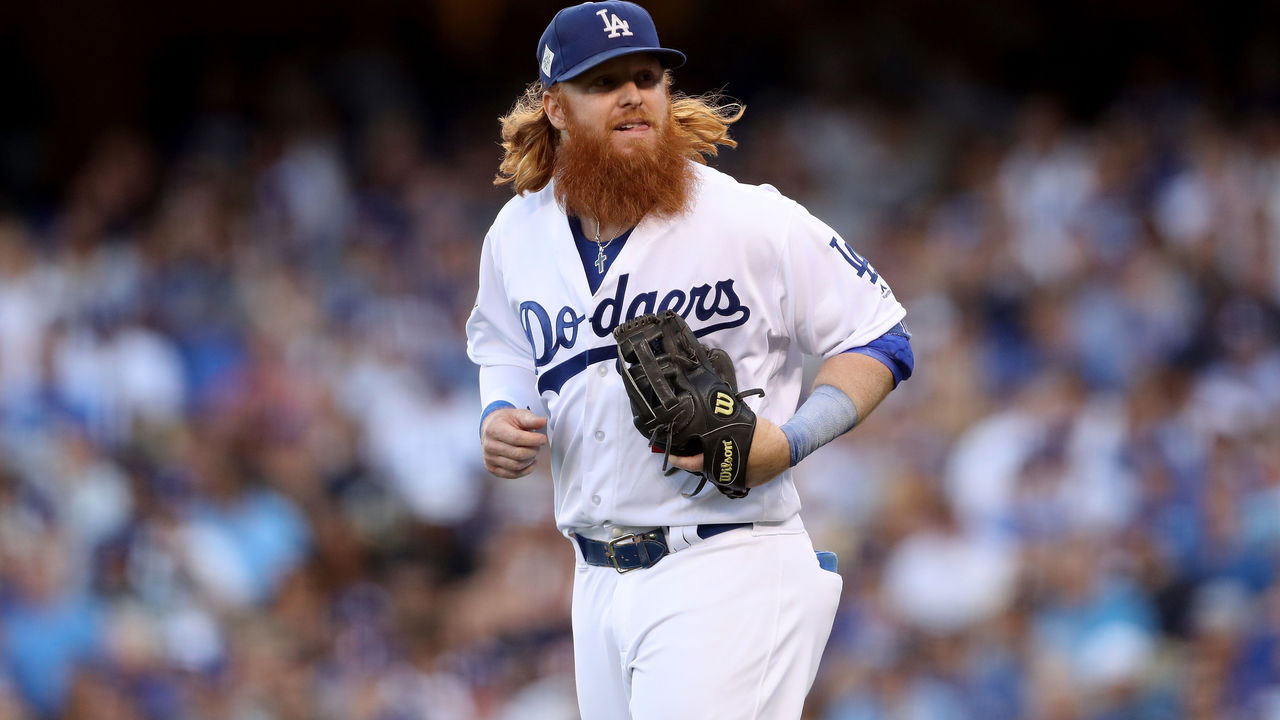
Best: Justin Turner (Minor-league contract)
Already one of the biggest non-tender mistakes ever (sorry, Mets fans), Turner exploded to stardom in his hometown after the Dodgers scooped him up for nothing. Besides turning into an anchor of the Dodgers' deep lineup and an All-Star third baseman, Turner's playoff heroics are now legendary in Hollywood. His Gibson-esque walk-off in Game 2 of last year's NLCS earned him a share of the series MVP, and his career .321/.445/.571 October slash line are among the highlights on his resume. You just never know where you'll find the stars.
Worst: Hector Olivera (6-year, $62.5M)
The Dodgers have a mixed bag when it comes to handing Cuban defectors big-money deals. Though they obviously hit on Yasiel Puig, Olivera headlines a list of big-time misses in this category. He was traded to Atlanta before reaching the big leagues, and only appeared in 30 games for the Braves before MLB handed him an 82-game suspension for violating its domestic violence policy. Though Olivera spent 2017 with the independent Sugar Land Skeeters, the Dodgers are still paying him a portion of this deal ($4.667 million) until 2020.
Miami Marlins
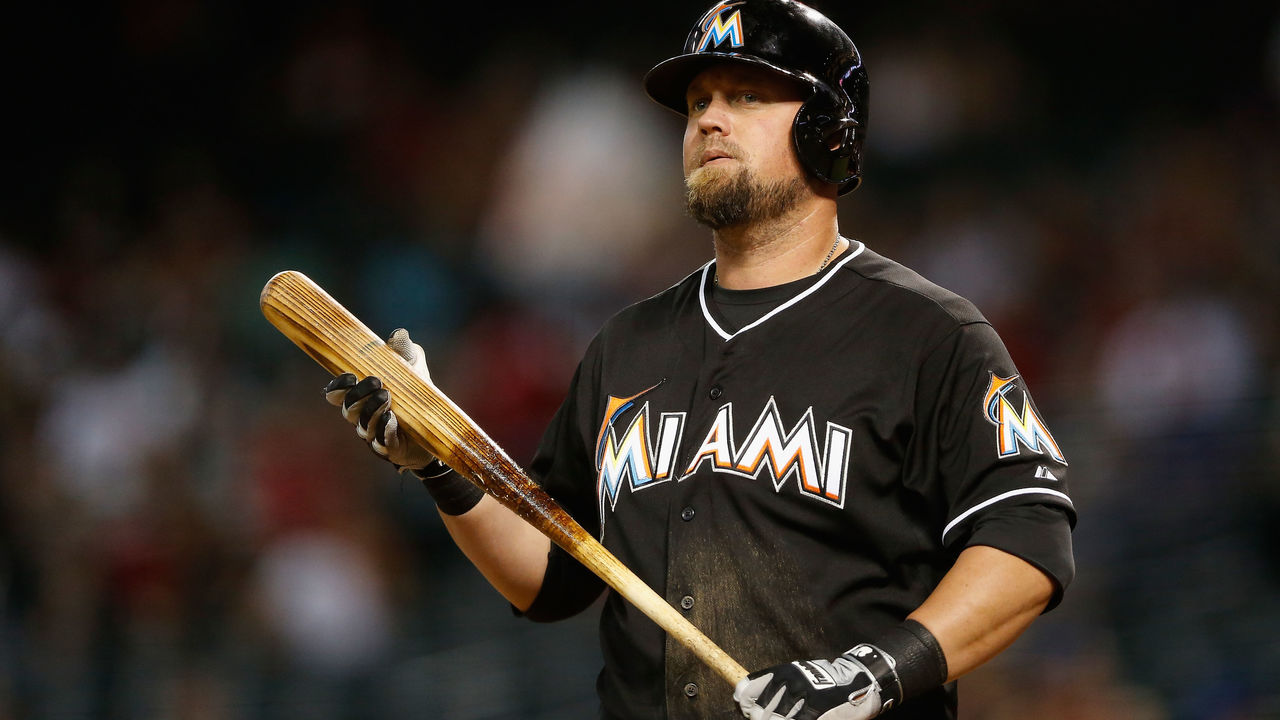
Best: Casey McGehee (1-year, $1.1M)
McGehee's MLB career had stalled in 2012, but after starring during a one-year stint in Japan, the Marlins brought him back to the U.S. on a one-year deal that turned into his career-best season. McGehee earned NL Comeback Player of the Year honors by hitting .287/.355/.357 as the Marlins' everyday third baseman. Miami then used his comeback season as a trade chip, sending McGehee - who would never again reach those heights - to San Francisco for a couple of prospects, including current Reds right-hander Luis Castillo.
Worst: Wei-Yin Chen (5-year, $80M)
For reasons that remain perplexing, the fiscally conscious Marlins gave Chen - who'd been a decent but unspectacular mid-rotation pitcher in Baltimore - ace-caliber money. Unsurprisingly, this decision blew up in the Marlins' face. Injuries limited Chen to just 22 starts and a 4.96 ERA in Year 1 of the deal, and a partially torn UCL cost him all but nine appearances in 2017 - the final five of which came as a mop-up reliever in meaningless September games.
Milwaukee Brewers
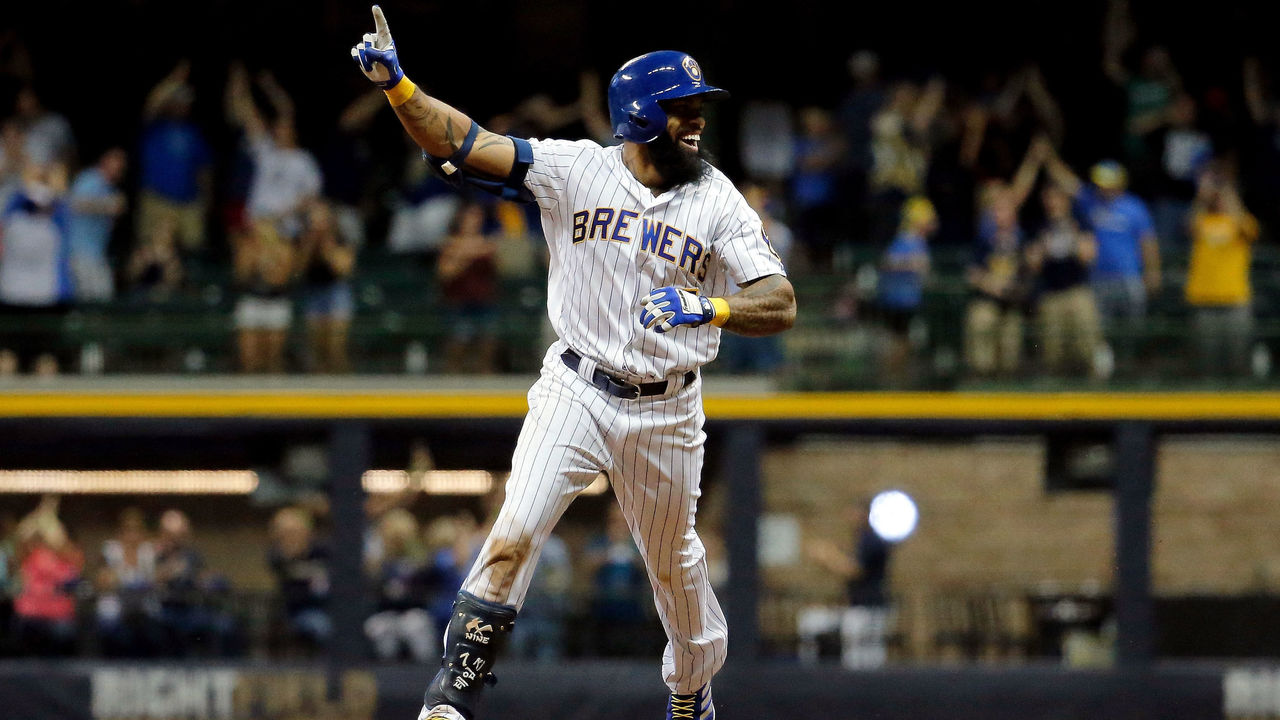
Best: Eric Thames (3-year, $16M)
When Thames left the majors for Korea in 2013, he was just another minor-league castoff with holes in his swing. After three years as a legitimate Korean superstar, he came back to MLB as a refined power hitter - and left 29 other clubs wondering how they missed out. Thames' numbers in 2017 certainly didn't match his video game-caliber output in the KBO, and as expected he didn't sustain his off-the-charts April pace, but he still gave the Brewers 2.1 WAR with a team-best 31 homers and .877 OPS last year. He's a critical (and popular) part of the Brewers' plans going forward, and this could go down as one of the great free-agent bargains of the decade.
Worst: Matt Garza (4-year, $52M)
The Brewers hoped Garza would be the anchor of their rotation, but things couldn't have gone any worse. Garza never made more than 27 starts in a single season with Milwaukee while battling injuries, inconsistency, and declining strikeout numbers. His 2018 club option was declined by the Brewers, presumably with little hesitation.
New York Mets
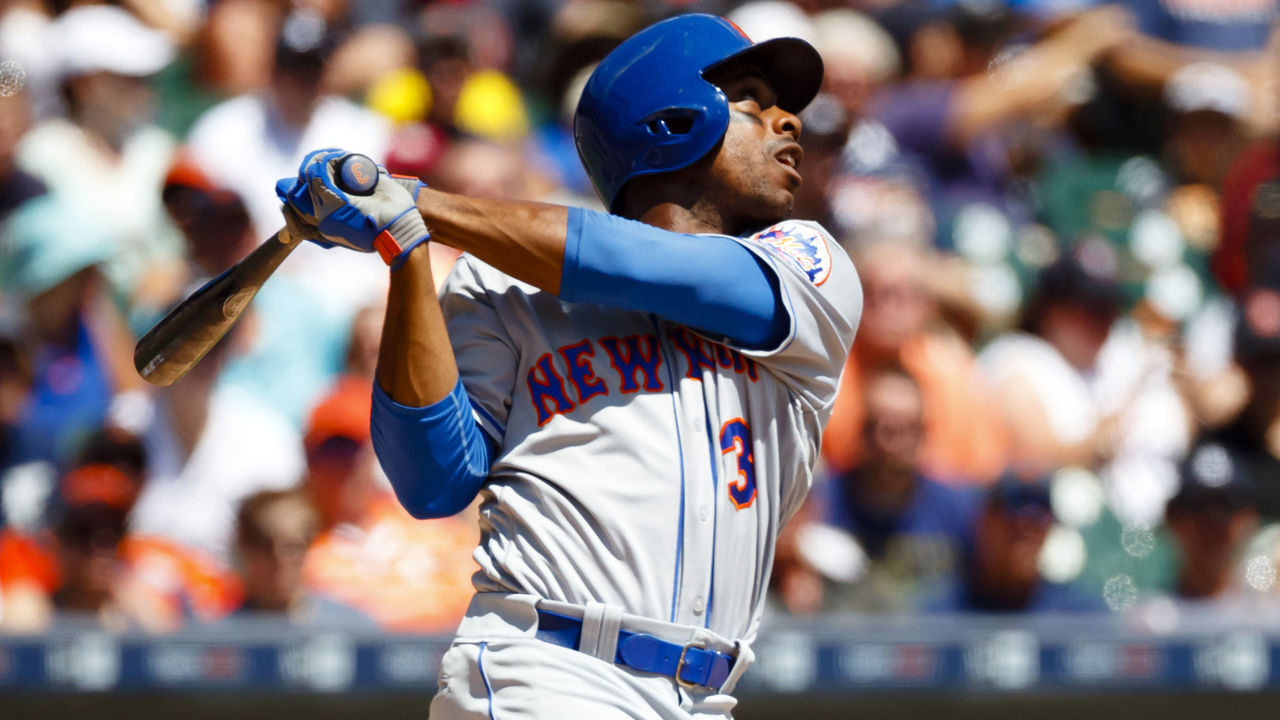
Best: Curtis Granderson (4-year, $60M)
Granderson was already established as a well-liked New York athlete after four years with the Yankees. And when he signed with the Mets in 2014, his effervescent personality, community work, and solid production made him as popular in Queens as he was in the Bronx. Over his first three seasons with the Mets, Granderson averaged 154 games and 25 homers a year, and was a critical component of their 2015 pennant-winning club. Though he regressed in Year 4, the Mets were still able to flip him to the Dodgers in August for a prospect.
Worst: Michael Cuddyer (2-year, $21M)
Cuddyer was only one year removed from a batting title when the Mets gave him this contract, but his 49-game 2014 season should have been the telltale sign. He completed just one year of this deal, appearing in only 117 games for New York while providing just 0.5 bWAR and struggling to stay healthy. Following the Mets' playoff run, during which he failed to make an impact on the field, Cuddyer retired.
Philadelphia Phillies
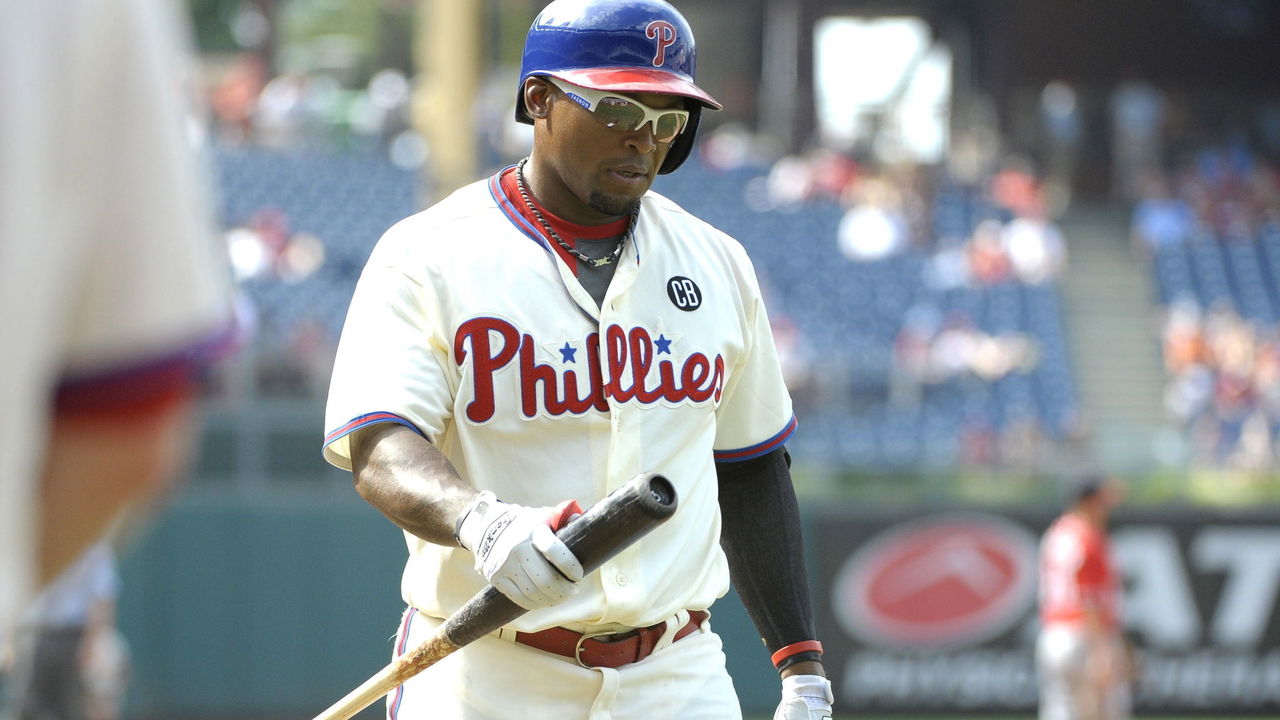
Best: Marlon Byrd (2-year, $16M)
The Phillies weren't great in 2014, losing 89 games, but Byrd was a bright spot. He gave the club everything it asked of him when it handed him this contract - 25 homers and a .757 OPS in 154 games, along with veteran leadership in a young clubhouse - before being flipped to the Reds the following winter for pitching prospect Ben Lively, who's now slated to be part of the Phillies' rotation in 2018.
Worst: Michael Saunders (1-year, $8M)
Saunders had made his first All-Star appearance in 2016 while with Toronto, and the Phillies gave him this short-term deal in hopes of flipping him at the trade deadline. Saunders' production in 2017 made that impossible, as he hit just .205/.257/.360 with minus-0.7 WAR in 61 games before the Phillies gave up and released him in June. He ended up back in the Blue Jays' organization on a minor-league deal.
Pittsburgh Pirates
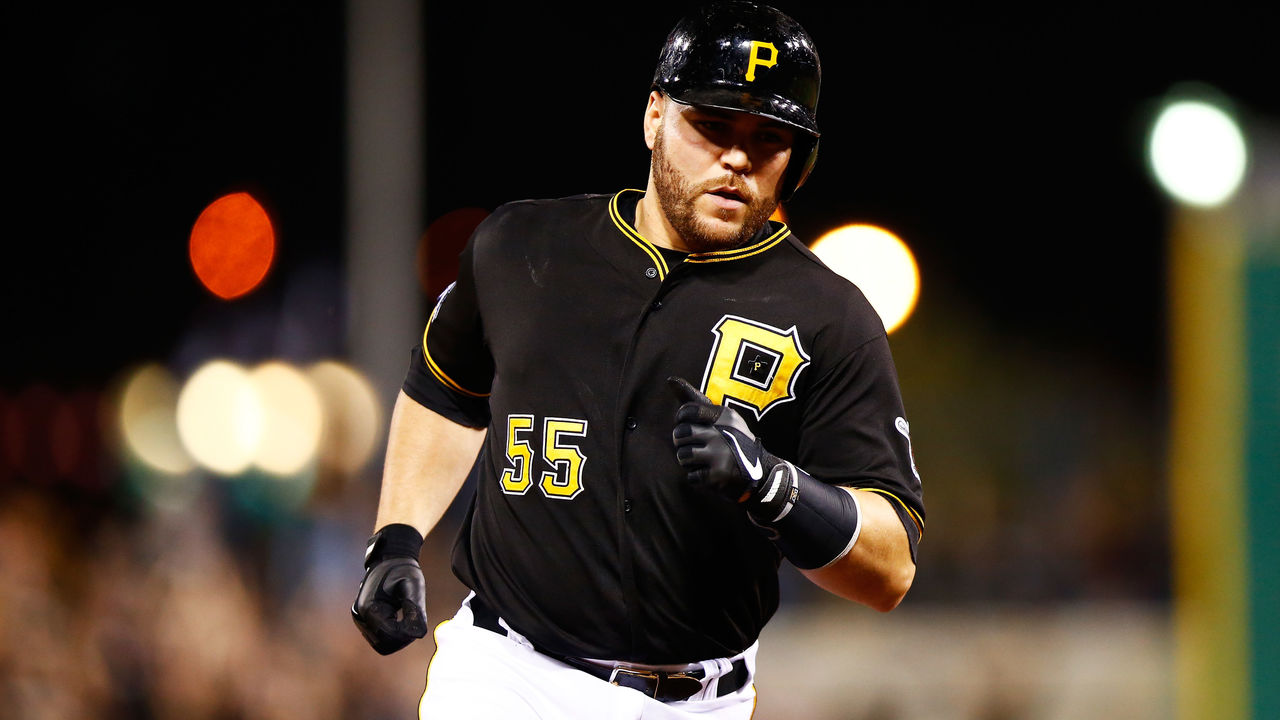
Best: Russell Martin (2-year, $17M)
Martin hit .256/.362/.401 with 9.7 bWAR over the life of this contract (including a career-best .290/.402/.430 line in 2014), while providing excellent defense behind the plate and guiding a young pitching staff to excellence. His work with the Bucs' pitchers also aided in the 2013 comeback season of Francisco Liriano, who could have easily taken this spot himself. But Martin gets it because he was one of the major reasons why the Pirates snapped a 20-year playoff drought in 2013, and his home run off Johnny Cueto in that year's wild-card game became an iconic moment for a team that had been starving for success.
Worst: Jung Ho Kang (4-year, $11M)
This looked like a steal when Kang finished third in NL Rookie of the Year voting in 2015. But this contract quickly became an unmitigated disaster for Pittsburgh due to Kang's litany of off-field problems. During the 2016 season, he was alleged to have assaulted a woman in his Chicago hotel room, though he was never charged with a crime. Last winter, he was arrested in Korea for a DUI - his third such arrest since 2009 - and for fleeing the scene of an accident. He pleaded guilty, missed all of 2017 after being denied a work visa to enter the United States, and was then cut by a Dominican winter league team several weeks ago. He's still technically under contract with the Pirates for 2018, but at this point, the odds of Kang ever appearing in an MLB game again appear remote at best.
San Diego Padres
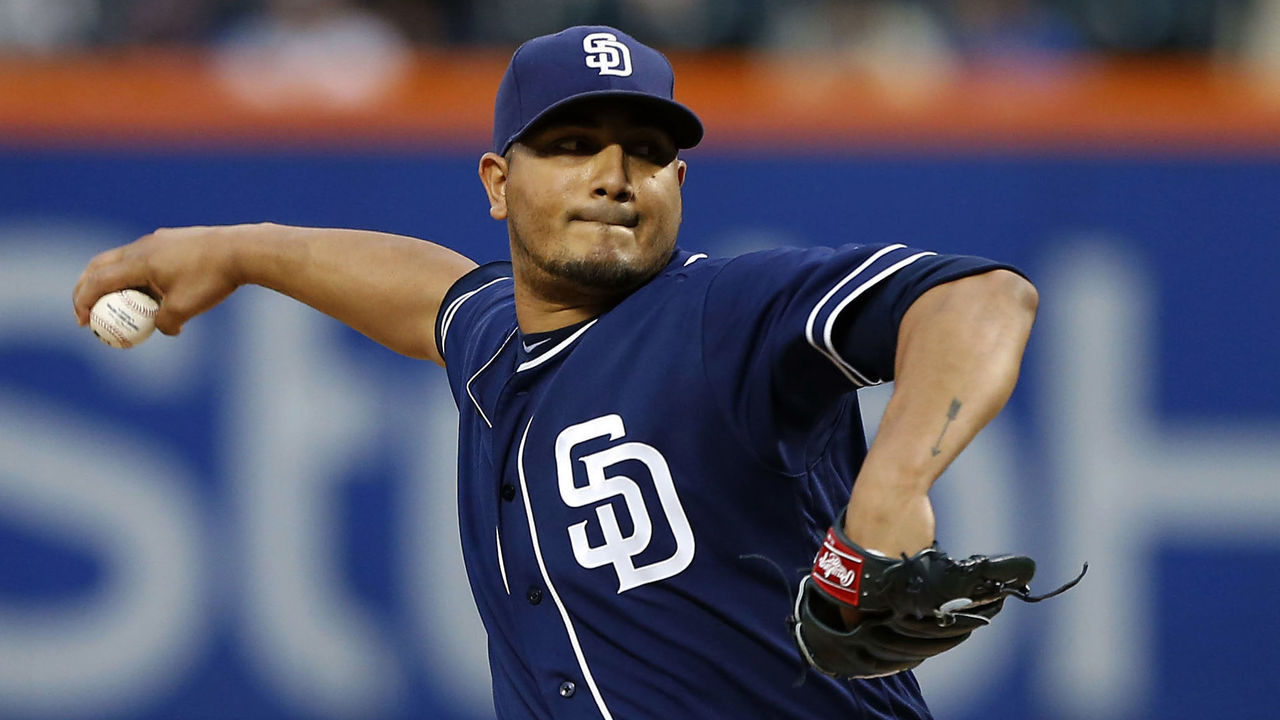
Best: Jhoulys Chacin (1-year, $1.75M)
The woeful Padres signed Chacin to eat innings, and that's exactly what he did for this rebuilding club, posting a 3.89 ERA in 32 starts while adding a career-high 153 strikeouts last season. The Padres got what they wanted, and Chacin then turned his production into a two-year contract with Milwaukee last month. Hooray - everyone's a winner!
Worst: James Shields (4-year, $75M)
"Big Game James" was supposed to elevate the Padres to greatness. Instead, like much of general manager A.J. Preller's failed 2015 shopping spree, he was a disaster. In his only full season as a Padre, Shields managed to lead the league in home runs allowed despite calling the pitcher's paradise of Petco Park his home. A small measure of victory was salvaged when the Padres dumped half of the contract onto the White Sox for a return that included top prospect Fernando Tatis Jr., but even that didn't fully correct the mistake of giving $75 million to the man who gave up Big Sexy's home run.
San Francisco Giants
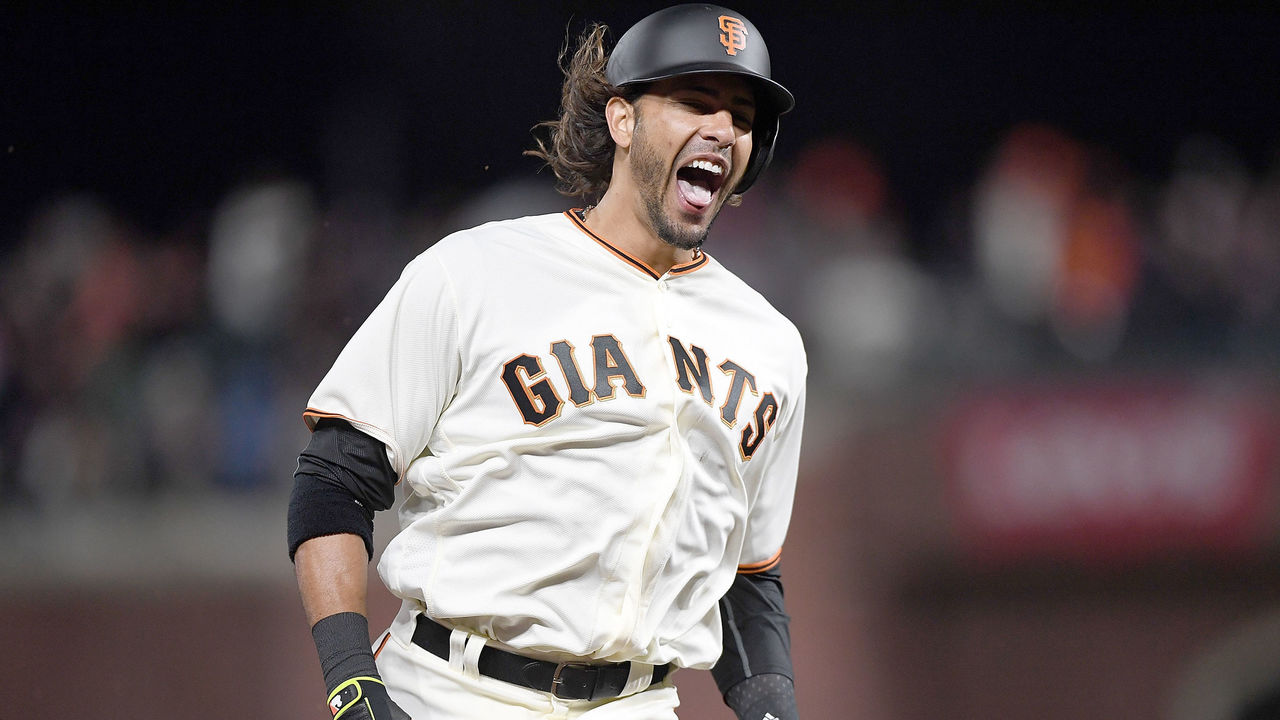
Best: Michael Morse (1-year, $6M)
Coming off a disappointing 2013 campaign split between Baltimore and Seattle, Morse joined the Giants on this bridge deal and - possibly with help from some of that even-year magic - turned in a stellar comeback season while becoming a fan favorite. Without his 16 homers and .811 OPS in 2014, the Giants may not have won their third World Series in six years. A close second was Morse's 2014 teammate Travis Ishikawa, who went from a midseason minor-league deal to hitting the Giants' most famous pennant-winning homer since Bobby Thomson.
Worst: Jake Peavy (2-year, 24M)
Like Morse and Ishikawa, Peavy became a Giants legend through his performance for the 2014 champions, and was rewarded with a new contract after briefly testing free agency. This proved to be the wrong move for San Francisco, as Peavy slumped to a 4.69 ERA (86 ERA+) over the life of this deal. He made just 19 starts due to injury in 2015 before ineffectiveness in 2016 forced Bruce Bochy to demote him to the bullpen. He didn't pitch in the big leagues last year.
St. Louis Cardinals
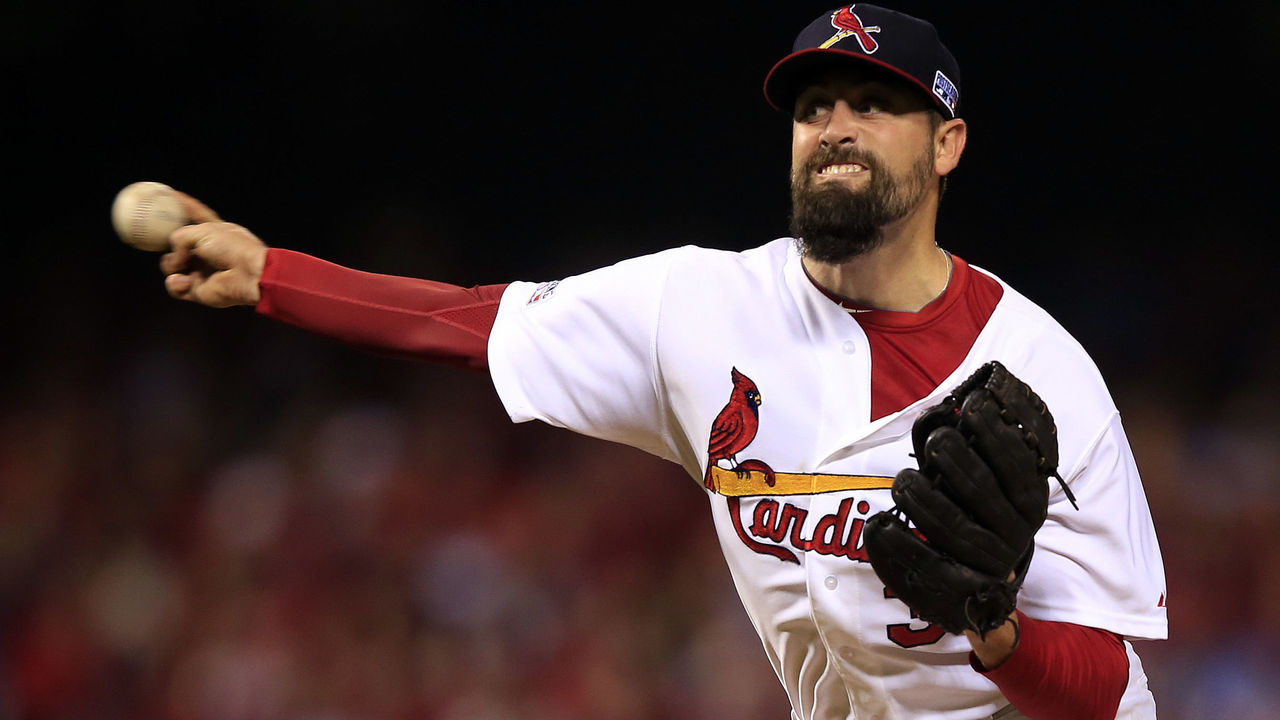
Best: Pat Neshek (1-year, $1M)
Neshek had shown flashes of his potential as an ace reliever before joining the Cardinals, but an injury-plagued 2013 season in Oakland meant he had to settle for this deal that turned into an absolute heist for St. Louis. In 67 1/3 innings for the NL Central-champion Cardinals, the sidewinding Neshek posted a 1.87 ERA and accrued 1.9 fWAR with an eye-popping strikeout-to-walk ratio of 7.56 (only nine walks all season). His excellence continued into the playoffs, where he held hitters to a .111 average during the Cardinals' run to the NLCS.
Worst: Mike Leake (5-year, $80M)
The Cardinals were banking on Leake's years of experience and familiarity with the NL Central from his Reds days when they handed him this contract that came with full, no-trade protection. Unfortunately, that version of Leake was left behind in Cincinnati. He allowed 10.3 hits per nine in his disappointing 2016 campaign, and was struggling again in 2017 when he waived his no-trade clause to join the Mariners. The Cardinals are paying down a significant portion of his remaining contract as part of the trade.
Washington Nationals
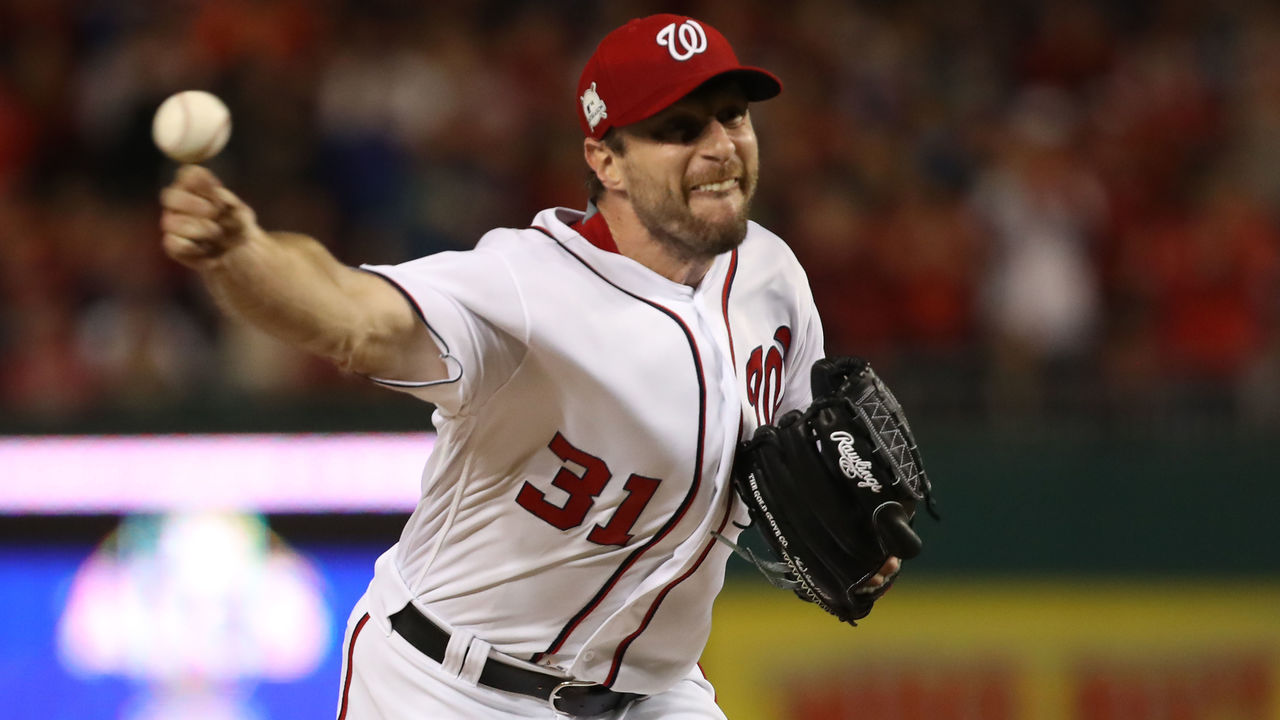
Best: Max Scherzer (7-year, $210M)
With the sincerest of apologies to Daniel Murphy, whose three-year, $37.5-million deal is proving to be one of the great bargains of the last few winters, it's Scherzer by a hair. Why? Because rarely, if ever, does handing over $200 million to a pitcher entering his 30s pay off like this. Scherzer has won two Cy Youngs in his first three seasons with the Nationals, thrown two no-hitters, and has cemented his place as arguably the finest strikeout pitcher of this era - while showing zero signs of slowing down. If he makes it to the Hall of Fame, something that's growing more likely with each passing year, he'll almost assuredly do so as the first to wear a Nationals cap. Murphy's great, but he's not getting into Cooperstown without buying a ticket, and that's the trump card.
Worst: Nate McLouth (2-year, $10.75M)
McLouth was signed to be a starting outfielder for the Nationals, an idea that was probably doomed from the get-go. In return for their investment, McLouth gave the Nats all of 79 games, a .173/.280/.237 slash line, and minus-0.5 fWAR that gradually pushed him from the starting lineup into bench duty. He suffered a torn labrum on a diving-catch attempt midway through 2014 that pushed him to the disabled list for all of the contract's second year, and ultimately ended his career.
(Photos courtesy: Getty Images)
HEADLINES
- The Spurs are growing up, Keegan Murray is stuck, NBA Cup matters
- Dahlin, Thompson each have goal and assist as Sabres beat Canucks
- Jokic hangs 36 on Kings as Nuggets grab 11th straight road win
- Bowles eviscerates Bucs in expletive-filled rant after TNF collapse
- Cousins throws 3 TDs to Pitts, Falcons stun Bucs despite 19 penalties